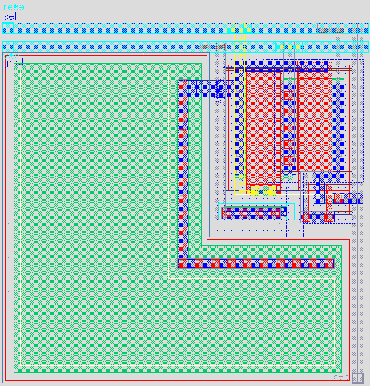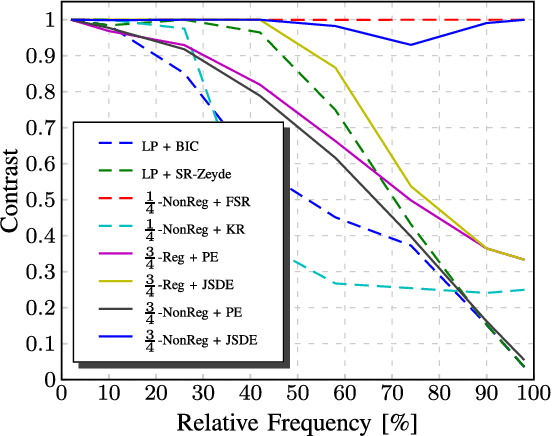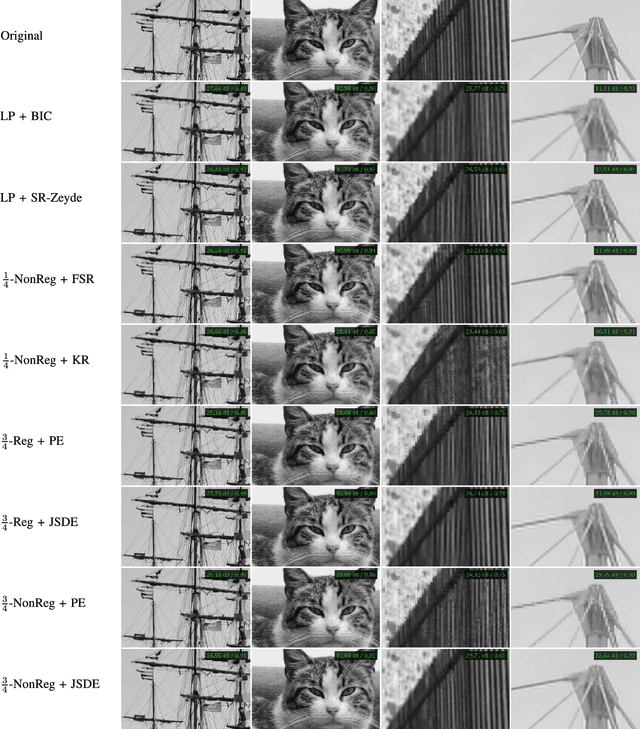Increasing Imaging Resolution by Non-Regular Sampling and Joint Sparse Deconvolution and Extrapolation
Paper and Code
Apr 27, 2022



Increasing the resolution of image sensors has been a never ending struggle since many years. In this paper, we propose a novel image sensor layout which allows for the acquisition of images at a higher resolution and improved quality. For this, the image sensor makes use of non-regular sampling which reduces the impact of aliasing. Therewith, it allows for capturing details which would not be possible with state-of-the-art sensors of the same number of pixels. The non-regular sampling is achieved by rotating prototype pixel cells in a non-regular fashion. As not the whole area of the pixel cell is sensitive to light, a non-regular spatial integration of the incident light is obtained. Based on the sensor output data, a high-resolution image can be reconstructed by performing a deconvolution with respect to the integration area and an extrapolation of the information to the insensitive regions of the pixels. To solve this challenging task, we introduce a novel joint sparse deconvolution and extrapolation algorithm. The union of non-regular sampling and the proposed reconstruction allows for achieving a higher resolution and therewith an improved imaging quality.
 Add to Chrome
Add to Chrome Add to Firefox
Add to Firefox Add to Edge
Add to Edge